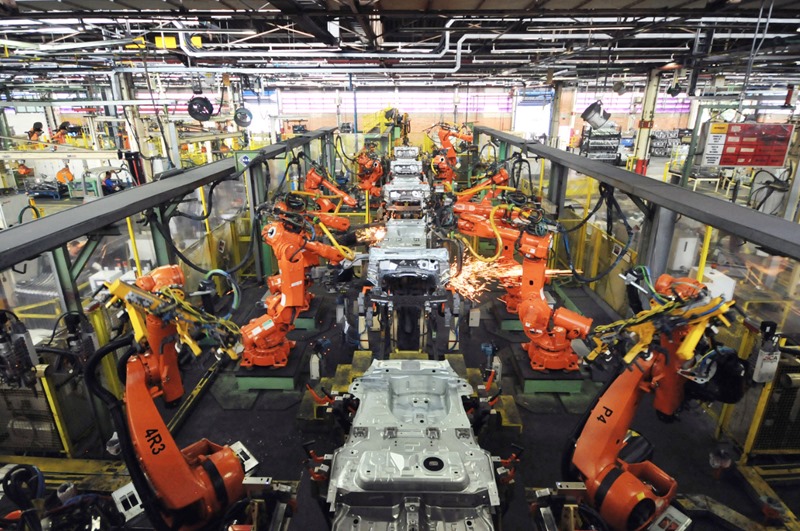
Automakers and electronics industry halt production again due to lack of parts
Jun, 24, 2022 Posted by Gabriel MalheirosWeek 202225
In the wake of lockdowns in China that raised supply difficulties in the industry, factories of the three largest automakers in Brazil – Fiat, Volkswagen, and General Motors (GM) – are shutting down again due to the lack of electronic components. The problem also affects the electronics industry, where the total number of factories with production delays or halted operations is the highest since the beginning of the semiconductor crisis.
The two industries have been facing a succession of obstacles to maintaining lines running without interruption, such as the war between Russia and Ukraine, from which many inputs used in chip production come. Another example is the work-to-rule campaign spearheaded by federal agents, which has delayed cargo clearance at customs.
With China’s pledge to zero cases of covid, the scenario has grown more difficult, as ship congestion induced by the Asian country’s port closures decreased the availability of containers and vessels available for the transit of commodities.
Fiat, a Stellantis group brand, will not produce automobiles in Betim for the next ten days since the Minas Gerais facility does not have enough parts to continue operations. Tomorrow, the employees of the automobile production lines will take their first vacation of the year. Fiat’s vacation for employees in the engine and transmission lines began on Monday, 20.
As last month, Volkswagen will again stop production in São Bernardo do Campo, in São Paulo’s ABC region, from Monday – this time for ten days. According to the ABC Metalworkers Union, workers return on July 7 with a 24% reduced working day (one day less per week) and a 12% cut in wages.
According to information from unions, GM, which on Tuesday, 21, no longer produced the Onix in Gravataí (RS), will also interrupt operations this Wednesday, 22, and Friday activities in the São José dos Campos factory line ( SP) where TrailBlazer SUV and the S10 pickup are mounted.
Production losses
Since the beginning of the pandemic, the Brazilian industry has stopped producing about 1.6 million vehicles. In the first year of the health crisis alone, 1.14 million units were lost, according to National Association of Motor Vehicle Manufacturers (Anfavea) calculations.
That year, all automakers in the country halted operations for several weeks to avoid the spread of covid. When enterprises were already running normally in 2021, a lack of components halted manufacturing, and approximately 370 thousand automobiles were not produced. General Motors had the Gravataí (SP) facility closed for over five months.
Until May this year, according to Anfavea, there were 16 industrial shutdowns, corresponding to 331 idle days (an average of 20 days per factory). During this time, 150,000 automobiles were not manufactured. When the pandemic hit in March 2020, the sector employed 107,000 people. There are 101,800 fewer today, a decrease of 5,200.
Consultant Cássio Pagliarini from Bright Consulting assesses that if the Brazilian market had maintained the growth rate registered between 2016 and 2019, in the range of 9% to 10% per year, today’s domestic sales would be close to 3.3 million units. However, Anfavea’s forecast points to a maximum of 2.3 million units, which can still be revised.
The new stoppages follow the car industry’s rebound in the last two months, particularly in May, when automakers saw the strongest production of the year.
With the positive performance and relaxation of restrictions in Shanghai, where the world’s largest port operates, the direction of Anfavea, an entity that represents the vehicle industry, evaluated that the supply of electronic components, which has been the sector’s main bottleneck, has gradually become less critical.
Since then, however, the lack of parts has continued forcing downtime, reinforcing that the problem is far from over.
Apart from a still-confident minority, practically all entrepreneurs in the electronics sector do not expect the normalization of supply by the end of the year. According to a poll conducted by Abinee, an industry representative, 57 percent of firms producing items such as cell phones, notebook computers, and televisions had production disrupted in some way last month due to a lack of electronic components.
The percentage of companies reporting delays or partial production stoppages was the highest since the study began tracking the effects of the global chip shortage in the electronics industry in February last year.
Three out of four factories that depend on semiconductors continue to face difficulties locating the input on the market. As a result, many have sought alternative suppliers, paid higher prices, and renegotiated delivery times with customers, among other measures, to get around the situation.
Source: A Tribuna
To read the full original article, please go to: https://www.atribuna.com.br/noticias/atualidades/montadoras-e-industria-de-eletronicos-voltam-a-parar-producao-por-falta-de-pecas
-
Ports and Terminals
May, 02, 2022
0
Ukraine formally shutters Russian-captured seaports
-
Economy
Jun, 01, 2021
0
Trade balance registers record US$ 9.29 billion surplus in May
-
Shipping
Jan, 07, 2020
0
Bolivia trade via Paraguay-Parana waterway reaches 1.3 million tons in 2019
-
Grains
May, 12, 2022
0
Smaller wheat crop forecast in Argentina


